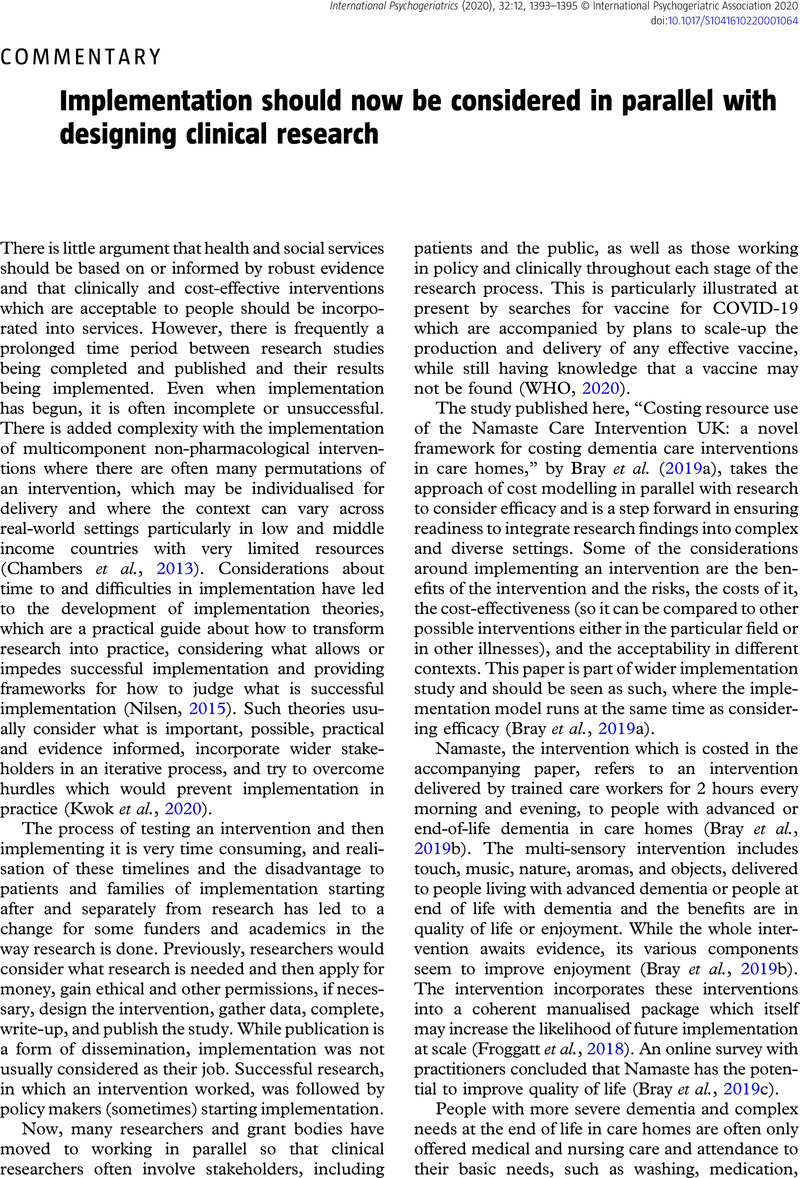Crossref Citations
This article has been cited by the following publications. This list is generated based on data provided by Crossref.
Pachana, Nancy A.
2020.
Implementation science in psychogeriatrics.
International Psychogeriatrics,
Vol. 32,
Issue. 12,
p.
1383.
Webster, Lucy
Costafreda, Sergi G.
Powell, Kingsley
Livingston, Gill
and
Rubinelli, Sara
2022.
How do care home staff use non-pharmacological strategies to manage sleep disturbances in residents with dementia: The SIESTA qualitative study.
PLOS ONE,
Vol. 17,
Issue. 8,
p.
e0272814.
Michaelian, Johannes C.
McCade, Donna
Hoyos, Camilla M.
Brodaty, Henry
Harrison, Fleur
Henry, Julie D.
Guastella, Adam J.
and
Naismith, Sharon L.
2023.
Pilot Randomized, Double-Blind, Placebo-Controlled Crossover Trial Evaluating the Feasibility of an Intranasal Oxytocin in Improving Social Cognition in Individuals Living with Alzheimer’s Disease.
Journal of Alzheimer's Disease Reports,
Vol. 7,
Issue. 1,
p.
715.





